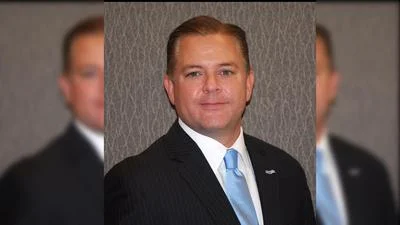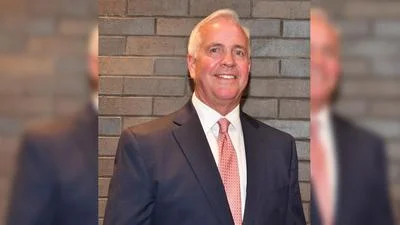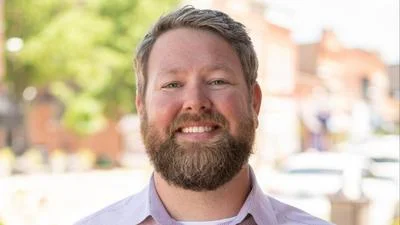Will County Judicial Committee met February 6.
Here is the minutes provided by the Committee:
I. Call To Order / Roll Call
Chair Darren Bennefield called the meeting to order at 9:03 am
Attendee Name; Title; Status; Arrived:
Darren Bennefield Chair Present
Gretchen Fritz Vice Chair Late
Kenneth E. Harris Member Late
Tim Kraulidis Member Present
Tyler Marcum Member Present
Debbie Militello Member Present
Beth Rice Member Late
Also Present: H. Brooks, R. Freitag and M. Johannsen.
Present from State's Attorney's Office: M. Tatroe.
II. Pledge Of Allegiance To The Flag
Mr. Brooks led the Pledge of Allegiance to the Flag.
III. Approval Of Minutes
1. WC Judicial Committee - Regular Meeting - Dec 5, 2017 9:00 am
Result: Approved [Unanimous]
Mover: Tyler Marcum, Member
Seconder: Tim Kraulidis, Member
Ayes: Bennefield, Kraulidis, Marcum, Militello
Absent: Fritz, Harris, Rice
IV. Old Business
V. New Business
1. Juvenile Processing at RVJC
(Chris Watkins, John Prinzi, Roger Holland) Mr. Bennefield introduced and thanked Mr. John Prinzi, Mr. Chris Watkins and Mr. Roger Holland for coming to discuss juvenile processing at RVJC. Many of us don't know the behind the scenes of what happens to the children of Will County. I wanted the Committee to have a better understanding on what is going on in the juvenile system. What happens to a juvenile from the time they are picked up, incarcerated and moved to the facility? What does their day look like? What are the average ages? Are we talking 10 year olds or 17 year olds?
Mr. Holland stated Will County is fortunate, we have an outstanding facility and people who are the best in their field. It starts with Mr. Prinzi, Director of Court Services, Mr. Watkins, Superintendent and Ms. Shannon McCormick, Director of Security at RVJC.
Mrs. Rice and Mr. Harris arrived at this juncture.
Mr. Watkins stated it is not a simple answer. As an adult, if you commit an offense, you run through the criminal justice process and after the disposition is a sentencing, a punishment. It is very different in juvenile law. The idea is not just an offense and an associated punishment, instead it is how do we restore the juvenile and the community. That ideology runs from the point of arrest to the disposition. At the point of arrest, there are options; an arresting agency takes in a juvenile. Our age of operation is 10 to 18 and it is a gray area because we have to facilitate the end disposition of the case. Anyone under the age of 18 who commits an offense, provided it is not a particularly heinous offense, runs the gamut under the juvenile court system, there may be some leeway that happens to the age of 21. We could have a juvenile in our facility from the age of 10 to 20 depending on how the case is being processed. State law prevents us from taking 10, 11 and 12 year olds unless the arresting agency has looked into community placement, usually that is done through a private agency and it is rare; in Will County it is typically Aunt Martha's. If they are unable to accept the youth into the program, they can request detention from us. It does not mean we will take the juvenile. We have a screening instrument, it makes sure we take in kids that need to be in detention. The screening instrument is primarily based on the most serious charge the juvenile is facing. We weight things like a crime against people much higher than crime against property or drugs. Offenses such as murder, heinous battery and rape, are weighted very heavily and will typically get a juvenile into the detention center. Crimes against property, damaging a park bench, minor drug offense, stealing to the amount of a misdemeanor typically do not get juveniles into the detention center. We weigh things such as what is their court status? What is the situation like at home? Is there gang involvement? Is there a likelihood of retribution or retaliation? We try to get the big picture and foster a dialog with the arresting agency to find out what is going on; to make sure we are putting the kids in the detention center, not only for the safety of the community, but also for their safety. We have to make that decision. It is a weighted decision and we apply the scoring instrument. There are ways to navigate. On the surface the situation may seem serious because of the charge, but it really is not. Other times, the charges don't seem big, a disorderly conduct for example; however, if someone is threatening to shoot up a school, it is felony disorderly conduct. We need to do the right thing and detain the kid to make sure those at school are safe. We do not take every child arrested. Once we agree to take the kid, we arrange for a convenient time for the arresting agency and we have staff to do the intake. The youth is brought in, we do a search, medical screening, release the arresting agency and begin the process of education by letting the child know what is happening in the justice system. We have to be an advocate as well. We educate them on what is expected at the detention center, what is expected in court; then we process them. At intake they have a brief screening and then meet with the nurse for a more detailed screening to make sure they are eligible for placement at the detention center. We assign them a room and we prep them for court the next day or the next available court date. A lot happens daily; Joliet Township High School District 204 operates a school inside our facility. We have three teachers assigned to us, usually with a special education background. There are three phases to our educational program. Kids not enrolled in a home school district or if the school district is not networking with us; will be tested and assigned school work grade level appropriate for their education. They are retested depending on how long they are in. Another phase is kids who are attending school in their home school district and are networking with us; our teachers reach out and get the school work, it is brought into the facility and completed under the supervision of our teachers and sent back. This means kids are not losing credit hours by being out of placement from the school. The final phase is a GED program. We work with the court system for kids ordered to prep and take the GED test in our facility, they work with our teachers and staff and prepare to take the GED. Our kids are doing well with that. Depending on the number of kids and financial situation we do GED testing quarterly. The educational program is during the day shift. In the afternoon we have good community resources with four faith based programs operating in our facility. One agency we have had a relationship for over 20 years, comes in and they provide religious services and counseling. A faith based group from Cook County provides a faith based life skills program. We have two others providing religious services, they are more mentor services for the community. We are very pleased with those programs. We partner with the Health Department to provide STD education and they do confidential STD and HIV testing, if requested. We partner with JJC for educational counseling with our kids on higher education, grooming them for when the leave and beyond high school. We partner with Guardian Angel to provide some domestic violence services and anger management programs. We have had an ongoing relationship with agencies, depending on the grants available; including Girl Scouts. When they have grants available they come in and provide a girls program, which in corrections is an underserved population, we have been working with them for 15 years. They have a game they created and published about how to stay out of the juvenile system. The biggest portion of what our staff does is working with the kids. I consider our staff to be like the platypus of the criminal justice field. It is a mammal with a duck bill, lays eggs and is odd thing. That is what we are; probation officers, doing a little correctional work, mentoring and counseling. The work being done with our kids is modeling and mentoring behavior, we do unofficial counseling.
Mr. Prinzi stated prior to last year, a juvenile detained on a Friday, typically would not go to court until Monday or the next available court date. Now, if they come in on Friday, they go to court on Saturday. If Monday is a holiday and they come in on Saturday or Sunday, they go to holiday court on Monday. We are getting kids to court quicker, so the court can make their determination. In the detention process all we do is make the determination for the initial detention after the police department or agency contacts us; we determine whether to bring the youth in. The judge will make the determination whether or not they are going to be detained after court. If they are detained, they follow the protocol explained by Mr. Watkins.
Mr. Holland stated normally bond court does not have a court reporter; it is not something where all the attorneys are present. To have Saturday court for juveniles we had to develop protocol where we have an alert, text and email system to alert the personnel to come in; otherwise they don’t come in. It was a big change for us, but clearly it was the right thing to do. We certainly, don’t want to detain kids any longer than we have to, before they go before a judge.
Mr. Prinzi stated another big thing we do is the mental health program at the detention center.
Mr. Watkins stated we have three licensed clinical psychologist and two unlicensed clinical psychologist at the facility to provide every kid detained past the detention hearing a mental health intake, which has a predicted nature about whether or not further testing needs to be done. It might indicate there is a potential mental health issue. We do group, individual and family therapy, both court ordered and determined by the mental health workers. We have a social worker on site and we do psychological evaluations and screening, all court ordered. We will do the forensic piece in juvenile with sexual, sanity and fitness evaluations; it is quite extensive.
Mr. Prinzi stated outside of Cook County we have the largest juvenile forensic unit in the state. We are fortunate the County has been very supportive of that. We get some funding from the State, but a significant portion of our funding comes from the County. Not only does Mr. Watkins and his staff deal with juvenile issues; we have expanded and do the fitness and insanity evaluations for the adult court at River Valley. We modeled after Kane County who has a diagnostic center, separate from the court. Our mental health unit is directly connected to and works under court services. That gives us more control in terms of the process and the staff we bring in. Mr. Watkins and his staff select the staff to work in the facility and another component is a significant cost savings. It is not an inexpensive venture, with having that number of clinical staff. Looking at the number of evaluations done in the juvenile and adult system and the costs required to go outside, and not have the control over the individuals doing them, it is beneficial on both levels.
Ms. McCormick stated our staff also does programming with the residents; not just outside agencies. Our program manager, has taken it upon herself to have the staff be more hands on with the residents and come up with life skills and programs they teach the residents. We had the residents, under staff supervision, make fleece blankets for hospitals and Veterans' home, they made Marines, Army and Navy, this is a way for them to give back to the community while they were with us.
Mr. Bennefield asked for an explanation of the Saturday court.
Mr. Holland responded we have holiday court, but you have to have a juvenile detention hearing and that is different. We always had holiday court for adults where they appear before a judge and bond is set or determination is made. We did not do it for juveniles, because it is a different hearing, more involved than a typical bond hearing. We recently went to that, not only because of the statute, but it was the right thing to do, so we would not have juveniles held longer than they had to be.
Mr. Bennefield asked how often do we use the Saturday system?
Mr. Prinzi responded it is streaky. We have gone 3 or 4 weeks without a date and then we might go for a couple of weeks where we get two or three.
Mr. Holland stated it is usually a low number. There is always a chance you could have an incident with a group of kids doing something and you would get a larger number. Our judges do a lot of things on Saturday, weddings, Orders of Protection, bond court and juvenile detention hearings.
Mr. Bennefield continued what is the current population at RVJC?
Mr. Watkins responded today it is 30; the maximum is 100.
Mr. Bennefield stated I would love to come out and see the facility. If there is interest from the Committee we can schedule a date.
Mr. Prinzi stated we just went through a complete overhaul of our security system so you can see how the County dollars were spent.
Mr. Holland added we did very well with the recent accreditation; we had 299 out of 300, one point away from a perfect score on our evaluation.
Mr. Bennefield asked what is the makeup of the population for males versus females?
Mr. Watkins replied it is typically overwhelming males. Our female population does go up from time to time. Over the past 20 years the range was a low of 12 and a high of 99 females. The female population is typically below 20%.
Mr. Holland stated currently there are four females of the population of 30.
Mr. Bennefield stated I would be interested to see how you separate them. Do they ever get in the same room at the same time? I would like to see that when I visit the site.
Mr. Holland stated when we bring them into the courthouse the juveniles and adults have to be sight and sound separate, with separate pathways, separate holding, it is a completely separate operation.
2. Update on ARI Supplemental Allocation
(Julie McCabe-Sterr and Dr. McCormick)
Ms. Julie McCabe-Sterr introduced Dr. McCormick and Mr. Joe Maso. We had an opportunity to apply for a supplemental allocation of our ARI grant and received $81,737. Since supplemental allocations are not guaranteed from year to year, we could not use it for staff, but were able to use for things we needed to do, including educational materials. Handout was presented to Committee Members along with a schedule. The most important thing we do is MRT. Our programming is the heart of our program. My staff has learned a lot from the juvenile justice system, in terms of restorative justice; making the juveniles’ whole and getting them back into the community. The adult criminal justice system has recognizing most people do come back into the community. The problem solving courts make the person more whole, increase their moral values, address the trauma and issues behind their criminality and substance abuse to get them back into the community, increase public safety and increase their likelihood of being successful. We bought curriculum and signed up for a number of training programs we would never have been able to do without this grant. We increased our budget for inpatient, outpatient and extended care. Some of the training we are doing is the EMDR, eye movement, desensitization and reprocessing. We did motivational interviewing, anger management, yoga, work with the ADHD brain and bio and neuro feedback training. We created by-laws for a 501-3(c), Friends of the Problem Solving Courts and hope to do things I was unable to do in my county budget; some of that is the bio-feedback equipment.
Dr. McCormick stated with our groups, we are trying to move clients away from antisocial behaviors into prosocial behaviors. First is the MRT, Moral Recognition Therapy Group. There are 12 steps the clients have to follow and it helps the client recognize where they have been dishonest and disloyal in their lives. Peers vote whether or not they pass. I have found the peers are harder on each other than I would be. By the time they finish MRT you can see a shift away from the antisocial into the prosocial. There are two opportunities where they do community service to give back to the community and helping others, getting to know their peers, all promoting the prosocial behaviors. We have a criminal thinking group 10 module program. We focus on thinking errors. There are a lot of repetitiveness with MRT and criminal thinking. It is the same authors, but a different focus and that is why I have chosen to have both of those groups. We do a Thinking for a Change group of 25 lessons which focuses on starting with social skills and then we move into cognitive and self-changing behaviors and problem solving. It helps the clients realize that what they are thinking about is effecting their feelings and ultimately their behavior. If they become aware of what they are thinking, they ultimately have the choice to retrain their brain to think a different way, so they feel different and therefore, behave different. When I do mental health assessments, there is a great deal of unaddressed trauma the groups are experiencing, which has led them not only to their substance abuse, but ultimately into the criminal justice system. By addressing the trauma that has been undiagnosed for years, individually and in our group setting, it is beneficial not only to the client, but to society as a whole. We have the mindfulness and yoga. Many of the clients who discontinue substance abuse will go through a period of time where their brain is trying to get healthy again. They may experience foggy brain, clumsiness, anxiety and depression; with the mindfulness and yoga, it teaches the client to be present in the moment, not think about the past or the future, and just be calm in the present. Neuro bio-feedback teaches the client the physiology of their body, they can basically control that through their thoughts, and by what you are thinking about you can increase and decrease your heart rate. There are a lot of complex issues with the neuro bio-feedback, but I believe it will be beneficial to our clients in reducing recidivism. We will be starting a money management group. We have elective groups, as clients completed the basic groups in the treatment plan and go through the last phase they are not as connected with staff, they were requesting to come back into some of the groups just to have that connection or additional groups. It was decided to have elective groups. The client can look at the brochure and see what group might benefit them, money management, anger management, errors in thinking groups and the trauma groups.
Ms. Fritz asked do you ever find resistance and pushback to classes such as the antisocial behavior or do you find the people who have been allowed in the problem solving courts are in a teachable mode and they are receptive?
Dr. McCormick replied we find both, some clients are ready for change, they are tired of the in and out with five or more arrests in the ARI program. Other clients want to enter into a treatment, problem solving court to not go to IDOC; a normal response. I like the clients to do that MRT group first, because it is challenging their mindset. It is a challenging group and I tell them it is not a feel good group; it is a challenge both ways. Change is hard even when we are of sound mind. It is more difficult at times with this population. I have noticed once the clients get to step four or five you start to see the split. The clients that are very resistant and don’t want to change will start missing groups, coming up with excuses and not being complete. At that point other things are identified such as a criminal arrest and most often they take a different route. Other clients are ready for the change, they accept the challenge they are faced with and are successful with the program.
Ms. McCabe-Sterr added sometimes they start and stop groups. If we see a client that is not making it, we will stop the group. They cannot graduate until they complete them, but we will work on more basic things until they are ready to re- engage in the groups. At graduations clients are asked to do a bio, what they got the most out of and what they didn’t like; the MRT is what they talk about being life changing. Most of my staff is grant funded so Mr. Maso is learning the grant process.
Mr. Brooks asked what happens when the grant runs out?
Ms. McCabe-Sterr replied the supplement grant will run out; that is why I used it primarily for treatment and training. The grant will never run out.
Ms. Fritz stated looking at the courses and elective courses, these are excellent topics.
Ms. McCabe-Sterr stated they look at us in Springfield as the model for all the ARI programs, because we are innovative. We do a little bit of everything.
ARI Presentation Handout
(Handout)
VI. Other New Business
VII. Public Comment
VIII. Chairman's Report / Announcements
IX. Executive Session
X. Adjournment
1. Motion to Adjourn at 9:42 am
Result: Approved [Unanimous]
Mover: Debbie Militello, Member
Seconder: Gretchen Fritz, Vice Chair
Ayes: Bennefield, Fritz, Harris, Kraulidis, Marcum, Militello, Rice
Next Meeting - March 6 ,2018
https://willcountyil.iqm2.com/Citizens/FileOpen.aspx?Type=15&ID=2907&Inline=True






 Alerts Sign-up
Alerts Sign-up